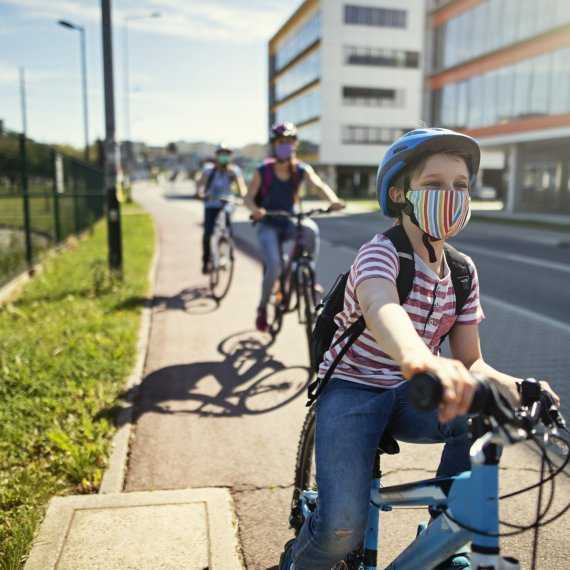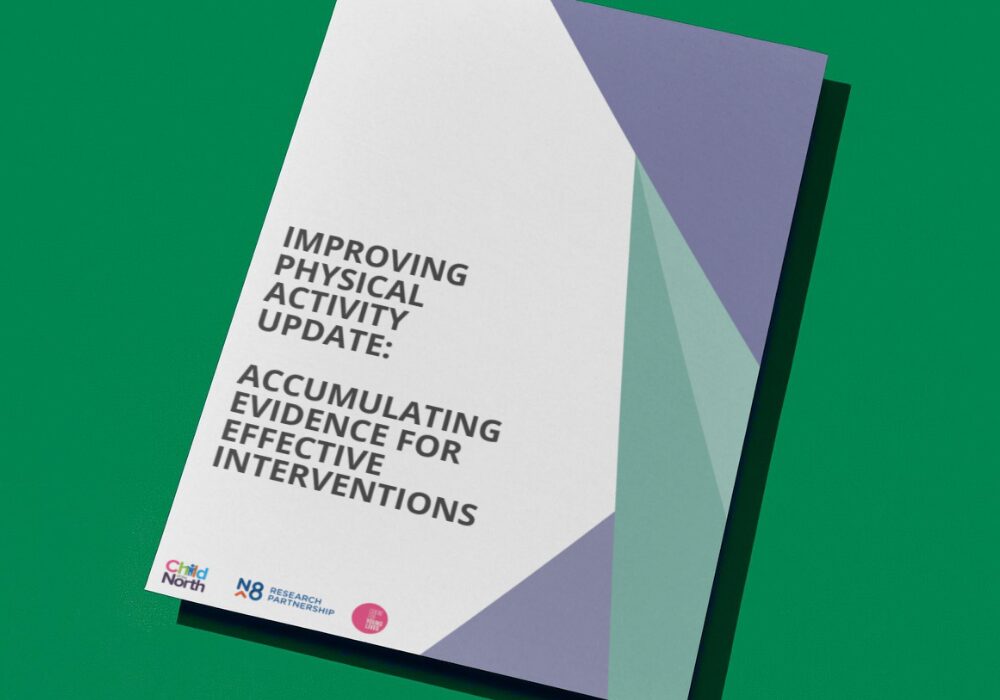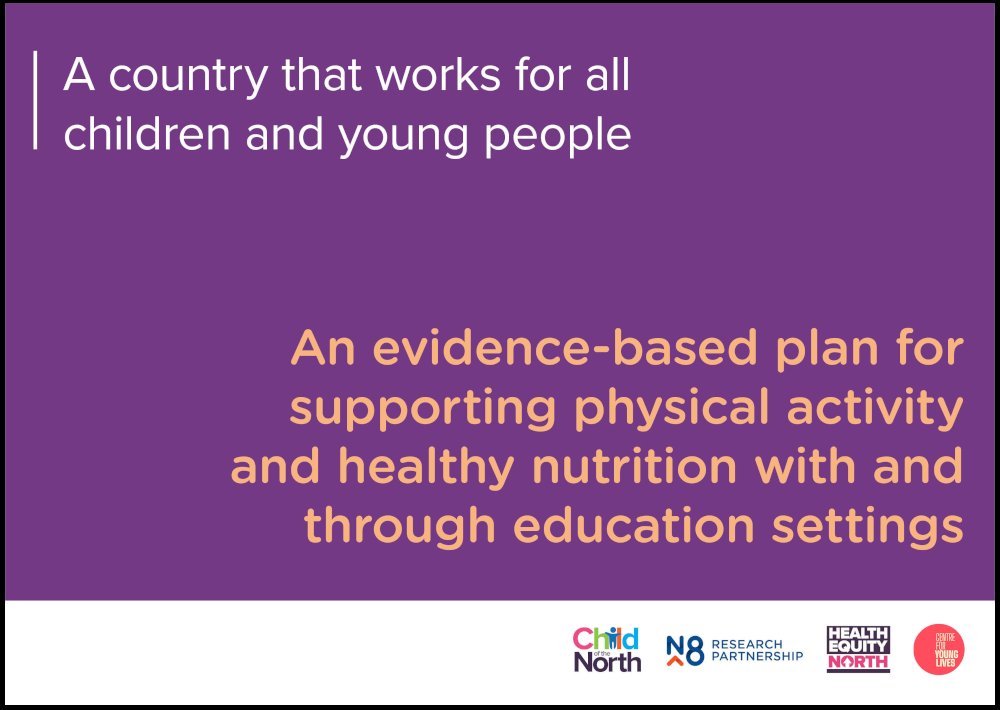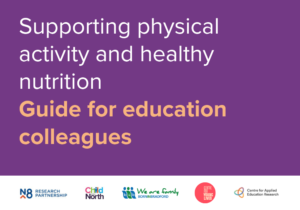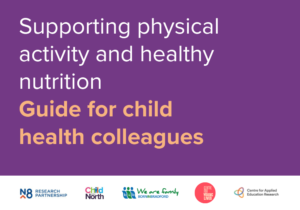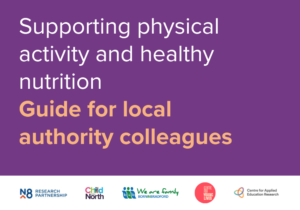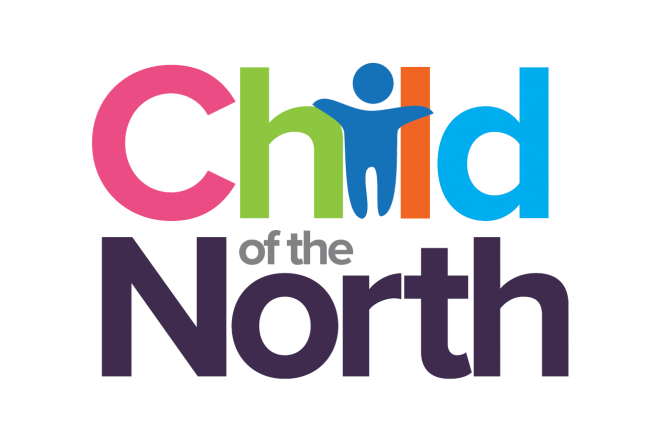Supporting physical activity and healthy nutrition with and through education settings
For a country that works for all children and young people
In 2024, Child of the North and Centre for Young Lives initiated a major campaign calling on the government to build a country that works for all children and young people. This campaign delivered a series of reports and webinars on twelve key topics identified by Northern child health leaders as major issues of concern, including poverty, special educational needs, school attendance and mental health. These reports provide rigorous research and pragmatic, evidence-based recommendations.
Published in May 2024, as the fifth report in the series, An evidence-based plan for supporting physical activity and healthy nutrition with and through education settings, calls for schools to be supported to fix the broken school food system and tackle Britain’s child obesity crisis. The report makes a series of recommendations, which, if implemented will help tackle the child obesity crisis and mend the broken school food system. It argues that schools should be crucial environments for boosting healthy eating and physical activity and highlights overwhelming evidence on the need to empower schools to devise their own whole-school approaches in collaboration with their local communities.
How To Guides
A series of toolkits have been developed to help practitioners and organisations take practical steps to improve the health and wellbeing of the children and young people with whom they work directly. Building on the findings of the Child of the North reports, these ‘How To’ guides provide evidence and suggestions about how all parties can work together.
Webinar
In June 2024 a number of the report’s authors came together to discuss the report’s findings and policy recommendations, including:
- Dr Lucy Eddy & Dr Andy Daly-Smith – University of Bradford
- Dr Alison Fildes – University of Leeds
- Prof Maria Bryant – University of York
- Prof Greta Defeyter – Northumbria University
Anne Longfield, Executive Chair of the Centre for Young Lives, said:
“We are facing a child obesity crisis, and our children are becoming unhealthier and less active. The resulting poor physical and mental health of our population is crippling the NHS and urgent action is needed. The broken school food system and the lack of school funding to improve school meals is acting as a huge barrier to healthy food choices and improved children’s health.
“With the right support, schools have a crucial role to play as partners in developing and delivering wider approaches to supporting improved health nutrition and increased physical activity. If we get it right, some of the other challenges facing schools – the rising number of absences due to ill health, concentration levels, and classroom behaviour for example – could also be improved.
“It’s time to superpower our schools and communities to help children and young people eat well, engage in physical activity, and be healthy.”
Professor Mark Mon Williams, Child of the North report series editor, said:
“The links between health and education are illustrated perfectly through the negative impact on learning created by a malnourished child. A healthy country needs to invest in its future workforce and this means supporting schools to help children eat well and be active. The paltry costs necessary to ensure children learn effectively would be swamped by the long term savings the NHS would make if it wasn’t picking up the obesity problems created through the first two decades of someone’s life.”
Report Author Dr Eleanor Bryant, Associate Professor in Health and Eating Behaviour Psychology at the University of Bradford, said:
“Children that receive adequate healthy nutrition are more able to engage with education as well as have better physical and mental health. This report highlights the benefits of universal approaches, including Free School Meals, and Breakfast Clubs. It also emphasises the importance of child voice in decision making around healthy nutrition in schools. We urgently need change to ensure children have the best possible chance to succeed within education settings.”
Report Author Dr Lucy Eddy, Lecturer in Psychology at the University of Bradford, said:
“The broader curriculum in schools emphasises the importance of wider health and wellbeing behaviours for later life chances. Schools need to be empowered to and rewarded for supporting more holistic child development. The adoption of whole-school approaches that are tailored to the needs of local communities, have the potential to have long-lasting impacts on education, health and wellbeing for the next generation and beyond.”
Sign up for updates on our 2024/25 Campaign
We will only use this data for the purposes of providing updates on the Child of the North 2024/25 campaign and report series. For more information see the Privacy Policy at https://www.sheffield.ac.uk/privacy
Previous Reports
Previous reports can be found archived on our Child of the North Reports page.
Contact Us
Stephen Parkinson, Research Partnership Manager
***



